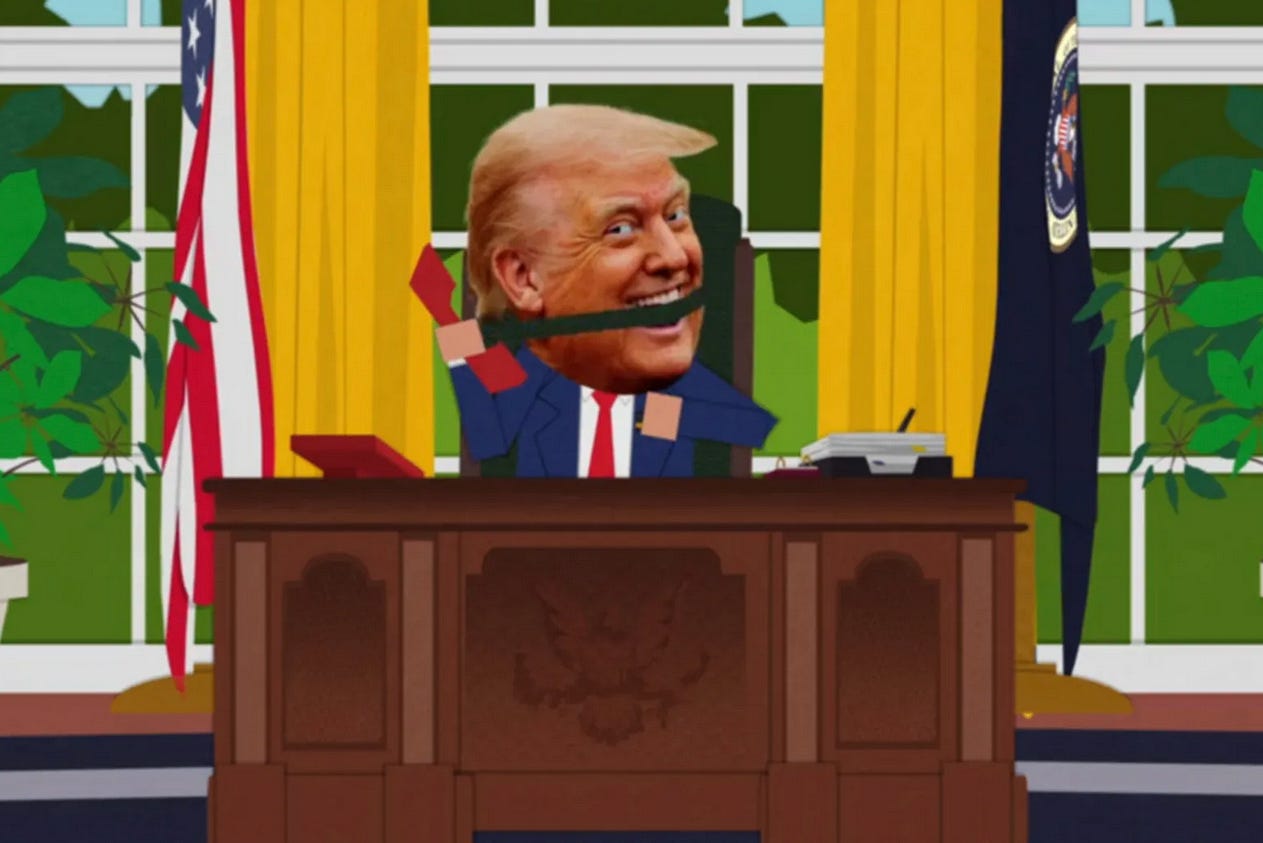'Sermon on the Mount’ May Be South Park’s Most Defiant Episode to Date
The season 27 premiere of Comedy Central’s subversive cartoon illustrates the power of satire
There are a handful of moments from the show’s history that the South Park season 27 premiere brought to my mind. Some of the callbacks might be obvious for other fans of the show; it’s an episode brimming with returning characters and references to seasons passed. But a few of the parallels that cropped up while watching for me have less to do…
Keep reading with a 7-day free trial
Subscribe to The Gen Z Report to keep reading this post and get 7 days of free access to the full post archives.


